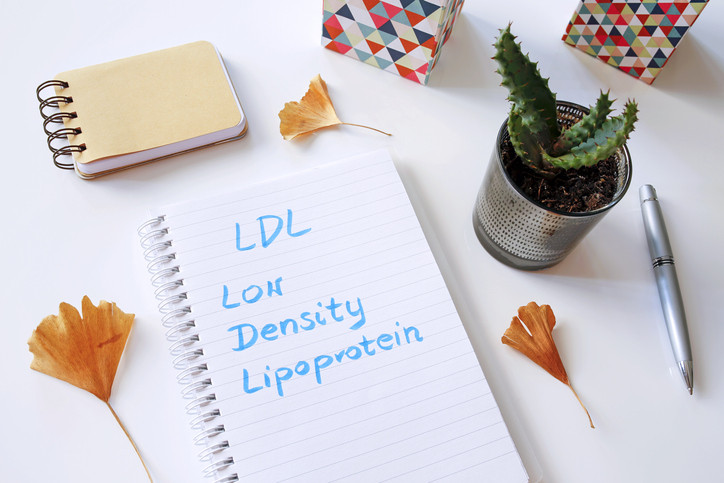
How does prostate cancer treatment affect mental health?

5 timeless habits for better health

What are the symptoms of prostate cancer?

Is your breakfast cereal healthy?

When pain signals an emergency: Symptoms you should never ignore

Does exercise give you energy?

Acupuncture for pain relief: How it works and what to expect

How to avoid jet lag: Tips for staying alert when you travel

Biofeedback therapy: How it works and how it can help relieve pain

Best vitamins and minerals for energy
Heart Health Archive
Articles
Concerns about swollen legs
Ask the doctor
Q. I have noticed my legs are getting more swollen lately. Is this anything to worry about? My mother also had this problem and was diagnosed with heart failure.
A. Leg swelling is very common, especially as people get older. Heart failure, which means the heart can't function well enough to meet the body's needs, is certainly on the list of serious causes. However, people usually experience other symptoms such as shortness of breath and fatigue by the time the heart failure becomes serious enough to cause leg swelling.
LDL cholesterol: How low can you (safely) go?
Lowering LDL cholesterol has been shown to lower risk of cardiovascular disease. Recent studies have suggested that more aggressive goals for LDL levels in people who already have CVD can decrease risk even further.
Congenital heart disease and autism: A possible link?
A recent study confirms that people born with congenital heart disease have a significantly greater risk of being diagnosed with an autism spectrum disorder. The research highlights the need for autism screening in children with CHD as early as possible.
The difference a healthy diet can make
Eating more unprocessed, plant-based foods is one of the best ways you can protect your heart.
What do you usually eat for breakfast? How about for lunch and dinner? These questions are standard fare during a consultation with Dr. Ron Blankstein, a preventive cardiologist at Harvard-affiliated Brigham and Women's Hospital. The answers help him tailor the dietary advice he gives, which can have a profound effect on the future health of his patients' hearts.
"Most people really aren't aware of the importance of a healthy diet, or they're confused about what they should be eating," says Dr. Blankstein. About five years ago, he revamped his own diet to follow what the current evidence suggests is the best way to avoid heart disease: a whole-food, plant-based style of eating. "I find that when I tell my patients I follow this diet myself, they're far more likely to buy into it," he says. (For an idea of what he typically eats, see "A day of plant-based meals.")
2020 vision: Cardiology trends to watch
Several new technologies and medications that may benefit the heart are moving into cardiology care.
As regular readers of the Heart Letter know, our features tend to focus on lifestyle advice and currently available therapies for heart disease. As the new decade begins, we're also looking to the future. Editor in Chief Dr. Deepak L. Bhatt selected five promising new developments in cardiovascular research that you may be hearing more about in the coming years.
1. Digital stethoscopes
First developed more than 200 years ago, the instrument doctors use to listen to the heart and lungs has undergone some high-tech improvements in recent years. The latest digital stethoscopes feature specialized microphones and sensors that filter, buffer, and amplify sounds from the heart. The sounds are then converted to a digital signal and sent wirelessly to a smartphone, where the patterns can be visualized and further analyzed. Some models are so sensitive they can detect turbulent blood flow in the arteries of the heart, possibly enabling doctors to detect coronary artery disease. Studies assessing that potential use are currently under way.
Born to move: Human hearts evolved to need exercise
An international study of apes and of people from different walks of life reveals how the human heart responds to physical activity.
A unique study that compared the hearts of African great apes, native Central Americans, and American athletes sheds new light on the evolution and adaptability of the human heart. But the findings also have a practical message.
"They reinforce the importance of regular brisk walking or jogging throughout life to stay healthy as you age," says the study's senior author Dr. Aaron L. Baggish, director of the cardiac performance lab at Harvard-affiliated Massachusetts General Hospital.
Great grains, super seeds
Editor's note: This year, we're highlighting grains and seeds on this page. Starting in February, we'll showcase a different grain or seed every month, with nutritional information and suggestions for adding these healthy foods into your diet. Here's some general background about these plant-based foods and why they're beneficial for cardiovascular health.
What, exactly, is a whole grain? Technically, they're dry, hard seeds of plants. Some are from grasses known as cereal grains, such as wheat, rice, corn, and oats. Others are from plants in different botanical families, such as quinoa, amaranth, and buckwheat, known as pseudo grains or pseudo cereals. A whole grain is one that contains all three layers of the grain kernel: the bran, the endosperm, and the germ.
Can music make workouts more fun and effective?
Research we're watching
Listening to up-tempo music during interval training may not only make your workout more enjoyable, but also elevate your performance, new research suggests.
Interval training involves short, repeated sessions of intense exercise separated by periods of less vigorous movement. It's an efficient but somewhat challenging strategy to improve fitness. However, music may make these workouts a bit easier, according to a small study in the November 2019 Psychology of Sport and Exercise.

How does prostate cancer treatment affect mental health?

5 timeless habits for better health

What are the symptoms of prostate cancer?

Is your breakfast cereal healthy?

When pain signals an emergency: Symptoms you should never ignore

Does exercise give you energy?

Acupuncture for pain relief: How it works and what to expect

How to avoid jet lag: Tips for staying alert when you travel

Biofeedback therapy: How it works and how it can help relieve pain

Best vitamins and minerals for energy
Free Healthbeat Signup
Get the latest in health news delivered to your inbox!
Sign Up











